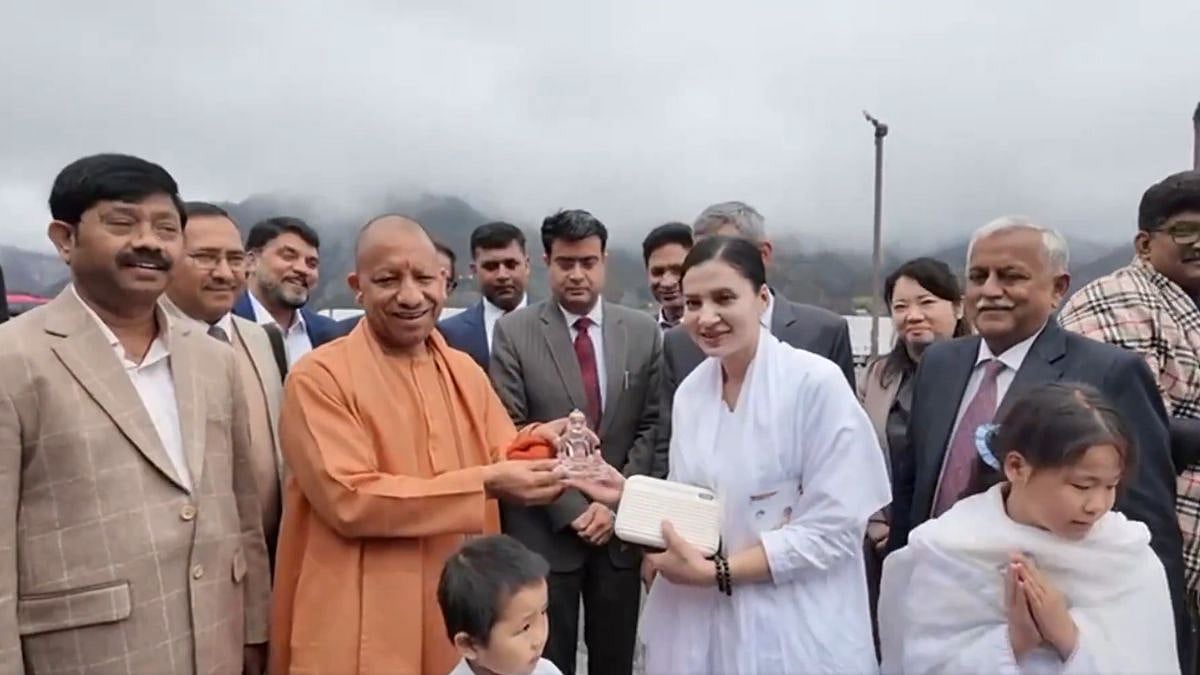Bhopal (Madhya Pradesh): The works of the masters like Rabindranath Tagore, Pablo Neruda, Gabriel Garcia Marquez, Orhan Pamuk, Milan Kundera and many others were lost to want of good and scholarly translations. All of these authors won global recognition. Tagore’s works suffered most in translation. Initially, Tagore himself was responsible for some terrible translations of his own works. Many Bengali authors have also tried to render Tagore’s works which can but be limned as embroidery seen from the back.
In 1912, Tagore sailed from India to England with a collection of English translation of over 100 poems which became the ethnology of Gitanjali – Song of Offerings. Tagore lost the manuscript on the London tube; but it was found in a left luggage office. Another Nobel laureate and Irish poet WB Yeats, who had heard about Tagore and was keen to know about Indian culture, longed for a conversation with his Indian counterpart.
Immediately after reading some of his poems, Yeats became an ardent advocate of Tagore, and pencilled some suggestions. Yeats wrote an introduction to Gitanjali. And Tagore became the first Nobel laureate from Asia in 1913. Despite weak translation of some poems, the work instantly struck a chord with the people across the world which was passing through a bad phase because of World War I.
Amid deaths and destruction, the spiritual message of Gitanjali came as a shower of mercy. The number of Tagore’s admirers across the world rose after poet Wilfred Owen’s mother found in her dead son’s diary: “When I go from hence, let this be my parting word, that what I have seen is unsurpassable.”
These lines quoted from a poem of Tagore became the key to the gate of the mystic world of the East, inspiring another Nobel laureate Andre Gide to translate Gitanjali into French – L’Offrande Lyrique. In introduction to his translation Gide wrote: “First of all, what I admire in Gitanjali is its slenderness. What I admire in Gitanjali is that it is uncluttered with mythologies. What I admire in Gitanjali is that one does not need any preparation to read it.”
However weak Tagore’s own translation of his poems may have been most of the authors who rendered them into their mother tongues depended on his rendition. Those who have the capability to understand Tagore’s works in Bengali, know well that they cannot be satisfied with the translations – however strong, good or close to the original work – they may be. The translations of his prose works, too, suffer from distortion.
In a review of the translation of The Home and World (Ghare Baire), a novel of Tagore, EM Foster said, “The theme is so beautiful, but the charms have vanished in translation or perhaps in an experiment that has not quite come off.” (box) William Radice’s contribution William Radice who emerged as a translator of Tagore’s works in 1980s has cut a swathe for himself among the contemporary translators.
What, however, distinguishes Radice’s translations from those of his predecessors is his imaginative and intuitive approach to render Tagore’s works into the receptor language. Radice is indebted to his mother Betty Radice, editor of Penguin Classics series (1964-1985). It was she who brought him to the world of translation. Radice said, “Translation of a poet is very complex.”
A volume of Tagore’s Collected Poems and Plays (1936) published by Macmillan & Co does not provide any background information about the bard and the translators. Those days the translators laid emphasis only on word-to-word rendering of his works – from source language into target language. Radice has, however, changed this approach. (box) Difficulties in translating Tagore A song of Rabindranath Tagore says, “Aaji Godhuli Lagane Badolo gagane (In this twilight, under the cloudy sky).”
How can the word ‘Godhuli’ be translated into English or any other languages? A translator may use ‘dusk’ or ‘twilight’ for it. ‘Godhuli Lagan’ means the time just before night when it is not completely dark. But is it so? Actually, it is the time when cattle return to their sheds raising dust from their hooves.
This seven-lettered word – Godhuli – portrays the end of the day in an Indian village with narrow dusty roads. So, the word ‘dusk’ or ‘twilight’ can neither depict the fading landscape of an Indian village nor the feelings that the word ‘Godhuli’ implies.
‘Godhuli’ exactly sketches the moods of Thomas Grey expressed in Elegy Written in a Country Churchyard: The curfew tolls the knell of parting day, The lowing herd wind slowly o’er the lea, The ploughman homeward plods his weary way, And leaves the world to darkness and to me.







